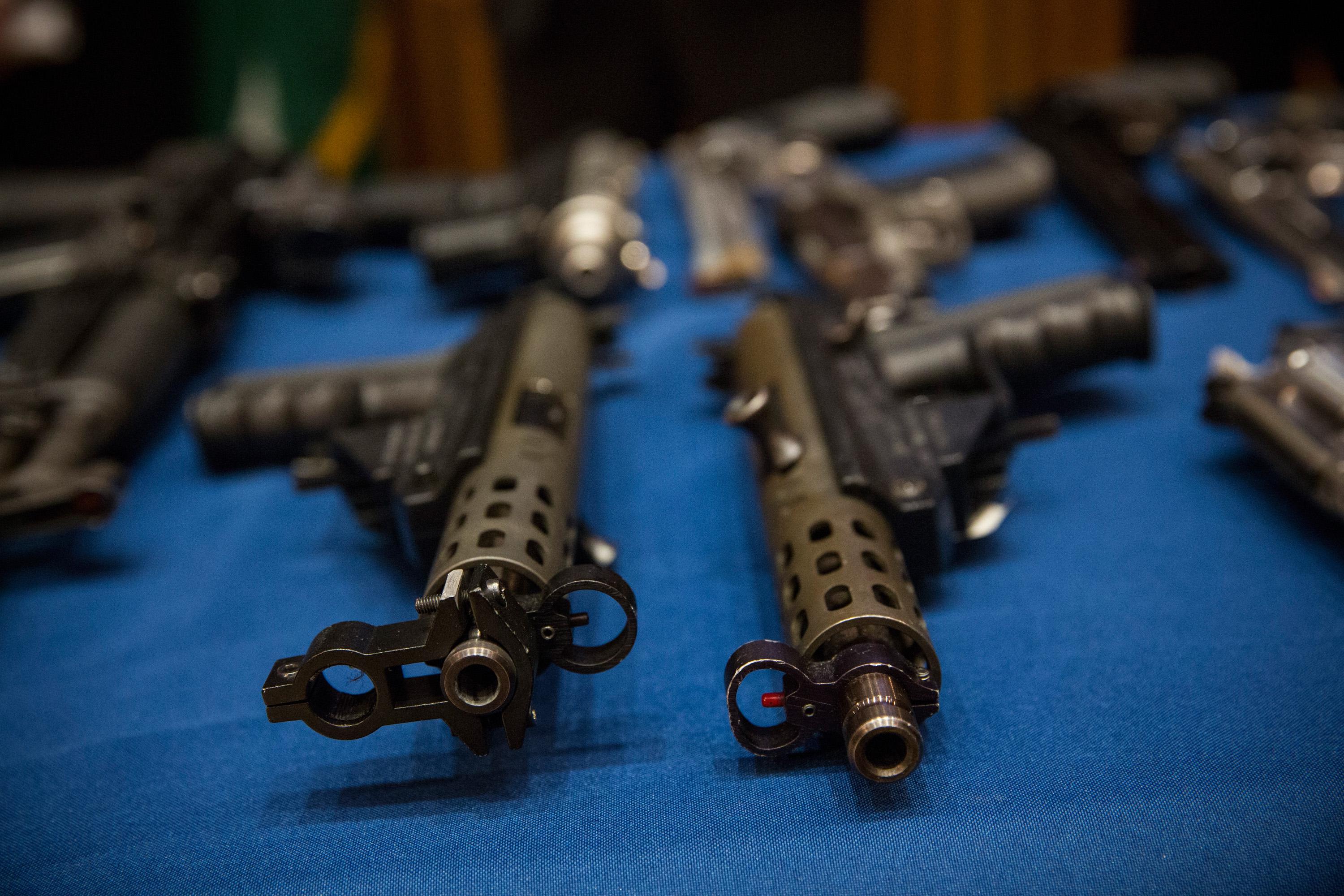New York City mayor Michael Bloomberg announced the city’s largest ever gun bust today. As part of a 10-month undercover operation, police seized 254 illegal firearms, including models typically used to commit violent crimes, Bloomberg said in a statement.
The historic raid started, of all places, on Instagram, reports the BBC.
The 10-month investigation resulting in the arrests began after police learned that gun sales were taking place in a recording studio in the borough of Brooklyn. An aspiring rapper had “posted images of guns and cash on Instagram”, New York Police Commissioner Raymond Kelly said.
19 people were indicted for trafficking firearms into the city from North and South Carolina. Two of the accused were caught transporting as many as 14 guns at a time on economy buses operating in the vicinity of Manhattan’s Chinatown, according to New York City police.
The city’s “Chinatown bus” services are popular for low-cost travelers of all types. Here’s how the Economist summed up the clientele.
For some 15 years “Chinatown bus” lines have shuttled thrifty folk between east-coast cities for a fraction of the price of name-brand carriers. Chinese immigrants were first to hop aboard, followed by college students and other cash-strapped Americans.
The buses, it turns out, are also an attractive way to transport guns, reports USA TODAY.
One of the discount bus companies charges $60 one-way from Raleigh, N.C., to New York. The fare is about half that charged by Greyhound, which, unlike the Chinatown buses, requires identification for boarding.
Bloomberg used the bust to trumpet the city’s controversial “stop-and-frisk” policing policy, which was ruled unconstitutional by a federal judge last week. According to Bloomberg, “the intelligence gathered during the investigation revealed that the defendants recognized New York’s pro-active policing tactics made selling weapons in the city more difficult.”
